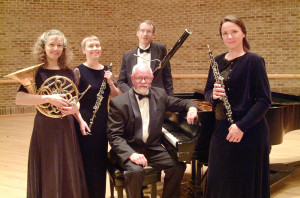 Here’s an interesting observation on the associations between musical instruments and social class. It’s from Paul Fussell’s Class: A Guide Through the American Status System
Here’s an interesting observation on the associations between musical instruments and social class. It’s from Paul Fussell’s Class: A Guide Through the American Status System (emphasis and paragraph breaks added).
There seems no place where hierarchical status-orderings aren’t discoverable. Take musical instruments. In a symphony orchestra the customary ranking of sections recognizes the difficulty and degree of subtlety of various kinds of instruments: strings are on the top, woodwinds just below, then brass, and, at the bottom, percussion. On the difficulty scale, the accordion is near the bottom, violin near the top.
Another way of assigning something like “social class” to instruments is to consider the prestige of the group in which the instrument is customarily played. As the composer Edward T. Cone says, “If you play a violin, you can play in a string quartet or symphony orchestra, but not in a jazz band and certainly not in a marching band. Among woodwinds, therefore, flute, and oboe, which are primarily symphonic instruments, are ‘better’ than the clarinet, which can be symphonic, jazz, or band. Among brasses, the French horn ranks highest because it hasn’t customarily been used in jazz. Among percussionists, tympani is high for the same reason.” And (except for the bassoon) the lower the notes an instrument is designed to produce, in general the lower its class, bass instruments being generally easier to play. Thus a sousaphone is lower than a trumpet, a bass viol lower than a viola, etc.
If you hear “my boy’s taking lessons on the trombone,” your smile will be a little harder to control than if you hear “My boy’s taking lessons on the flute.” On the other hand, to hear “My boy’s taking lessons on the viola da gamba” is to receive a powerful signal of class. the kind attaching to antiquarianism and museum, gallery, or “educational” work.
Guitars (except when played in “classical” – that is, archaic – style) are low by nature, and that is why they were so often employed as tools of intentional class degradation by young people in the 1960s and ‘70s. The guitar was the perfect instrument for the purpose of signaling these young people’s flight from the upper-middle and middle classes, associated as it is with Gypsies, cowhands, and other personnel without inherited or often even earned money and without fixed residence.
Not sure I agree with that. Guitars were used in the sixties because they allowed the musician to sing (something you certainly can’t do with a wind instrument), and guitar playing in the sixties was often about group singing.
What about the piano, another popular instrument for group singing? Like the clarinet, it spans the gamut from symphony orchestra to jazz bar. What’s different about the piano (at least a non-electric one) is that it’s not portable. It’s commonly found in places like community centers where people congregate and sing. You could sing along with a violin, but guitars, pianos and accordions provide multiple notes and a fuller sound, not just the melody line.
I’m interested in social class because of its contribution to inequality. According to Derek Bok’s The Politics of Happiness, “reduced levels of well-being among lower-income groups stems not from disparities in wealth but from differences in status, autonomy, and authority.” Status is one aspect of social class.
The entire first chapter of Paul Fussell’s book is available online. He begins with the observation that “class” is a very touchy subject, and people don’t want to talk about it. That was written in 1983. I wonder just how true that still is today.
Related posts:
Our only language is English
Health inequities: An inhumane history
The new Chinese middle class and syphilis
A reason for health care reform
Dance for joy: Rosen Method Movement and a Minnesota wedding
Resources:
Photo source: Appalachian State University
Paul Fussell, Class: A Guide Through the American Status System
Paul Fussell, A Touchy Subject, PBS
Richard Staines, Equality of Opportunity, Social Class and Music Education, 1998


Sorry, comments are closed for this post.